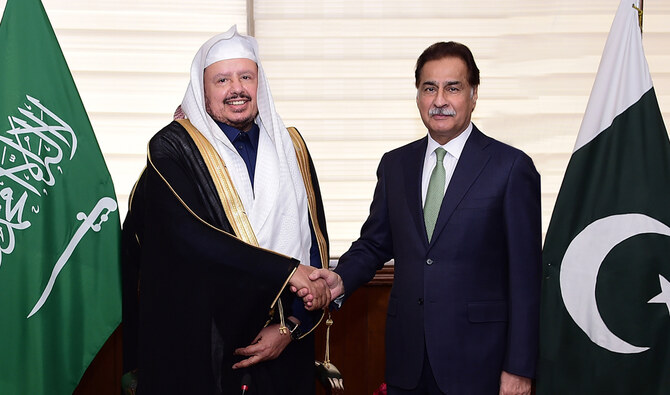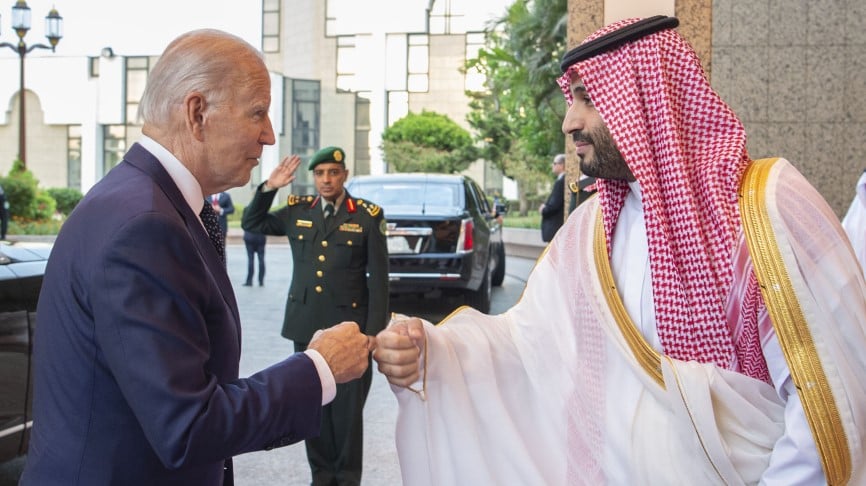Introduction
In a significant diplomatic move, the United States and Saudi Arabia have issued a set of five demands to Pakistan’s military and civilian leadership. These demands focus on counterterrorism efforts, diplomatic relations, and Pakistan’s role in regional security. The latest development signals mounting international pressure on Islamabad to align its policies with global peace and stability efforts.
Pakistan, a key player in South Asia, has long been under scrutiny for its approach to terrorism, its foreign relations, and its ties with various global powers. The newly issued demands highlight the changing geopolitical landscape and could reshape Pakistan’s diplomatic and strategic policies.

The Five Major Demands
According to reports, the five demands cover crucial geopolitical concerns and demand swift action from Pakistan. These demands include:
1. Normalization of Relations with India
One of the most significant demands is for Pakistan to work towards normalizing relations with India. Tensions between the two nuclear-armed neighbors have persisted for decades, particularly over the disputed region of Jammu and Kashmir. The United States and Saudi Arabia are pushing Pakistan to initiate diplomatic dialogue with India and ensure that its territory is not used for terrorist activities targeting India.
The demand also emphasizes Pakistan’s need to recognize India’s sovereignty over its territories and engage in peaceful negotiations instead of fueling hostilities. For decades, cross-border skirmishes, terror attacks, and political conflicts have strained relations between the two nations. A peaceful resolution could pave the way for economic growth and regional stability.
2. Recognition of Israel
A highly controversial demand is for Pakistan to recognize Israel as a legitimate state. Over the years, several Muslim-majority countries have normalized relations with Israel under diplomatic agreements such as the Abraham Accords. The United States, along with its allies, is urging Pakistan to follow suit and establish formal diplomatic ties with Israel.
Pakistan has long maintained a policy of non-recognition towards Israel, citing its solidarity with Palestine. However, growing geopolitical shifts, particularly within the Arab world, indicate a move towards normalization. Saudi Arabia, a key influencer in the Muslim world, is also working towards recognizing Israel, and its involvement in this demand suggests a broader shift in Middle Eastern politics.
3. Countering Iran’s Regional Influence
Another key demand is for Pakistan to support efforts to counter Iran’s influence in the region. The United States and Saudi Arabia have expressed concerns over Iran’s expanding presence in Middle Eastern and South Asian geopolitics. There have been allegations that Pakistan has been maintaining close ties with Iran, especially in energy trade and military cooperation.
With Iran often being at odds with both Saudi Arabia and the United States, this demand places Pakistan in a difficult position. Balancing relations with its neighboring Iran while appeasing international pressures could prove to be a challenging task for Islamabad.
4. Reducing Military and Strategic Ties with China
The U.S. and Saudi Arabia are also asking Pakistan to reassess its military and strategic partnerships with China. In recent years, Pakistan and China have strengthened their bilateral relations, particularly through the China-Pakistan Economic Corridor (CPEC), which is a part of Beijing’s Belt and Road Initiative.
China has been a key military supplier to Pakistan and has played a significant role in its infrastructure development. However, Western powers are increasingly wary of China’s growing influence in South Asia, and this demand suggests that Pakistan is being asked to reconsider its dependence on Beijing.
5. Stronger Counter-Terrorism Measures
Perhaps the most pressing demand is for Pakistan to take a more aggressive stance against terrorism. There have been longstanding accusations that Pakistan harbors terrorist groups that operate in India and Afghanistan. The demand calls for immediate action to dismantle these networks, strengthen intelligence-sharing, and ensure that Pakistani soil is not used for extremist activities.
This demand aligns with previous global calls for Pakistan to do more in fighting terrorism. Over the years, various terrorist organizations have been accused of using Pakistani territory as a base for their operations, leading to international concerns over Islamabad’s counter-terrorism policies.
Geopolitical Implications
These five demands indicate a shift in how the world perceives Pakistan’s role in global and regional politics. The increasing scrutiny from powerful nations such as the U.S. and Saudi Arabia suggests that Pakistan is at a crossroads.
Impact on Pakistan-India Relations
If Pakistan agrees to normalize relations with India, it could lead to economic and political stability in the region. Cross-border trade, tourism, and cultural exchanges could resume, benefiting both nations. However, internal opposition from political and military groups within Pakistan could hinder such efforts.
Impact on Middle Eastern Politics
Recognizing Israel would be a historic move for Pakistan, aligning it with the growing number of Muslim-majority nations that have formalized relations with Tel Aviv. However, this could also lead to internal backlash, particularly from pro-Palestinian groups.
Pakistan’s stance on Iran has also been a delicate issue. Aligning against Iran would strain its relations with Tehran but strengthen its ties with Gulf allies, particularly Saudi Arabia.
Impact on U.S.-Pakistan Relations
Washington’s involvement in these demands shows that the United States wants Pakistan to play a more defined role in global geopolitics. A positive response from Pakistan could improve U.S.-Pakistan relations, potentially leading to increased trade, economic aid, and military support.
On the other hand, rejecting these demands could result in strained ties with Western powers. There are reports that non-compliance could lead to economic sanctions or reduced financial aid, further worsening Pakistan’s economic situation.
Pakistan’s Possible Response
Pakistan’s response to these demands will be crucial in shaping its future. There are three likely scenarios:
- Full Compliance: Pakistan could agree to all five demands, leading to improved diplomatic relations with the U.S. and its allies. This could result in economic aid and strategic partnerships but may trigger domestic political unrest.
- Partial Agreement: Pakistan might agree to some demands while resisting others, particularly those related to Israel and China. This middle-ground approach may help Islamabad maintain some of its strategic alliances while appeasing international pressure.
- Total Rejection: Pakistan may choose to reject the demands entirely, maintaining its current policies. This could result in diplomatic isolation, economic sanctions, and increased international scrutiny.
Conclusion
The five demands placed on Pakistan by the United States and Saudi Arabia reflect the changing dynamics of international politics. As the world shifts towards new alliances and geopolitical strategies, Pakistan finds itself under pressure to align with these broader objectives.
The decisions taken by Pakistan’s leadership in the coming months will be crucial in determining its future role in global affairs. Whether it chooses to comply, negotiate, or resist, the impact will be felt across South Asia, the Middle East, and beyond.
The world is watching Islamabad closely. Will Pakistan bow to international pressure, or will it chart its own course? Only time will tell.
Vendors Flock to the United Arab Emirates to Sell Naval Drones



